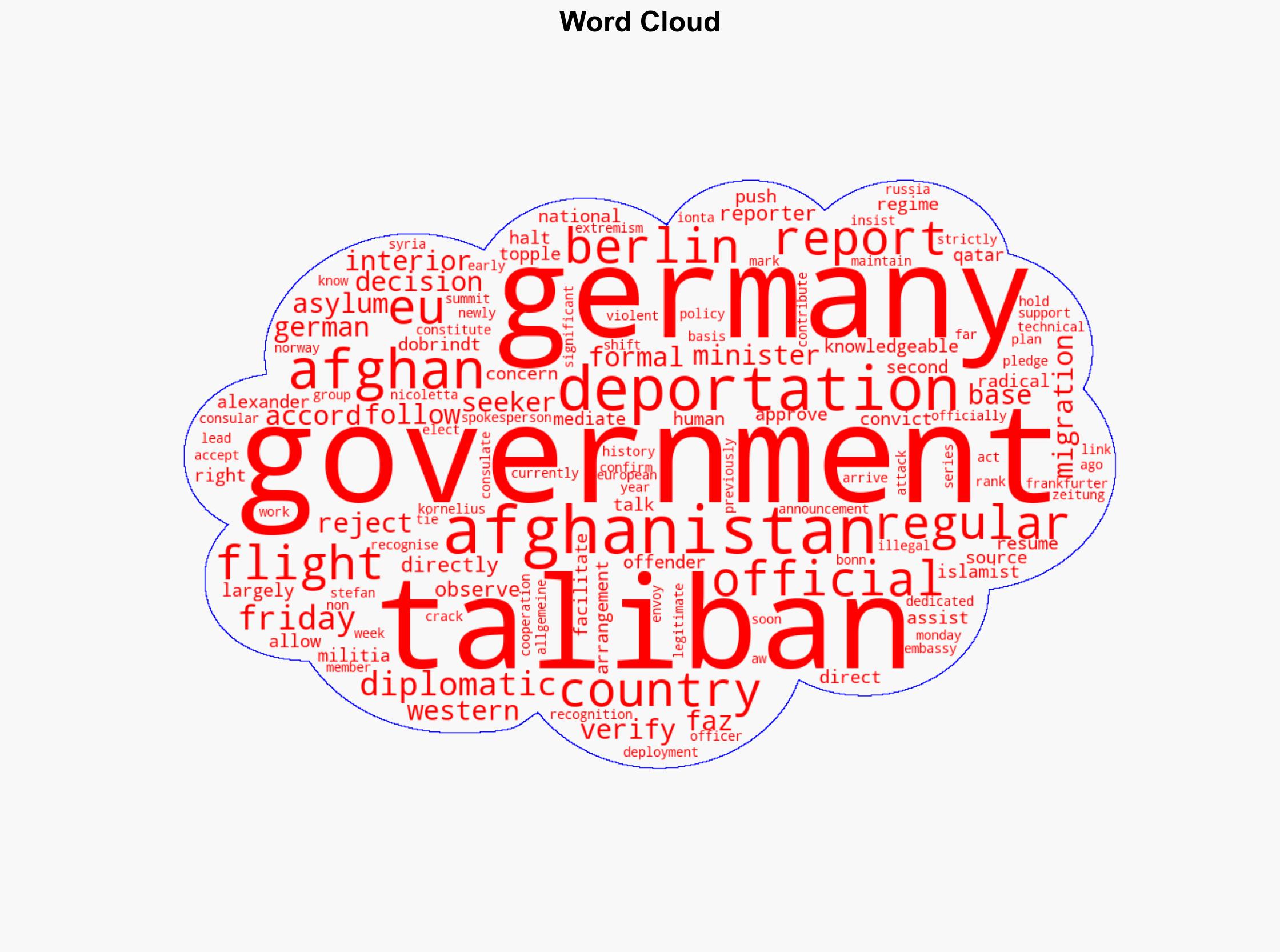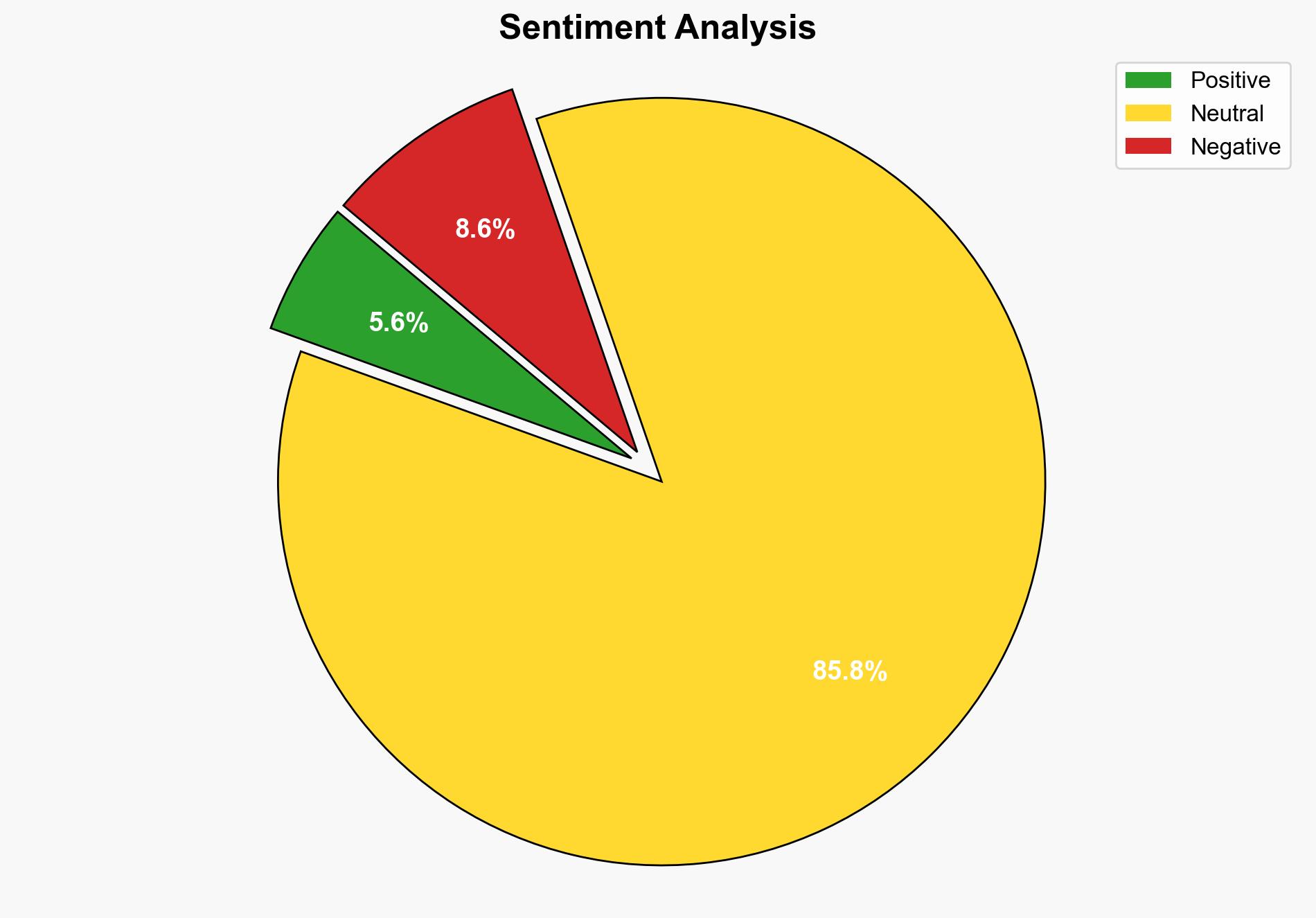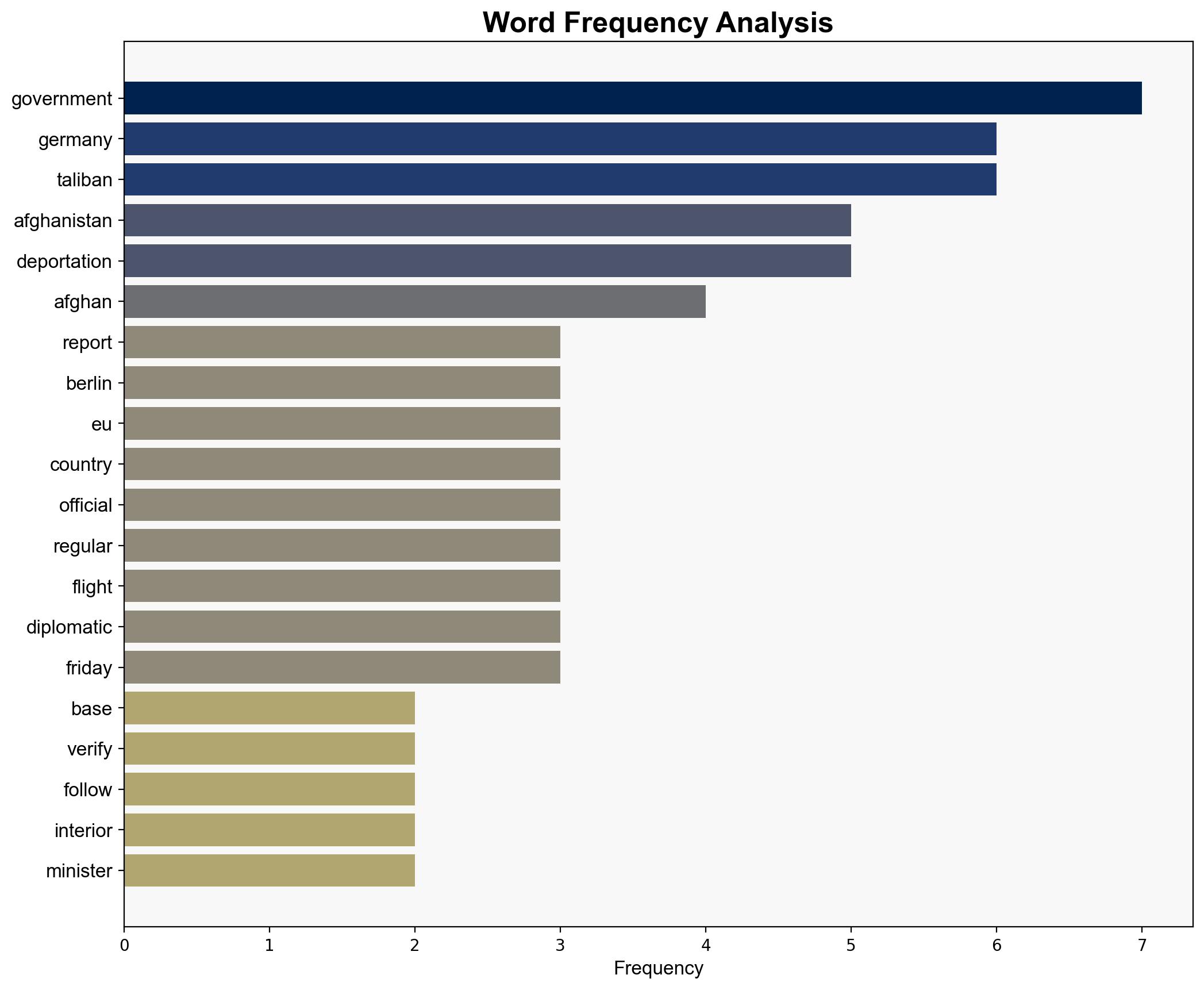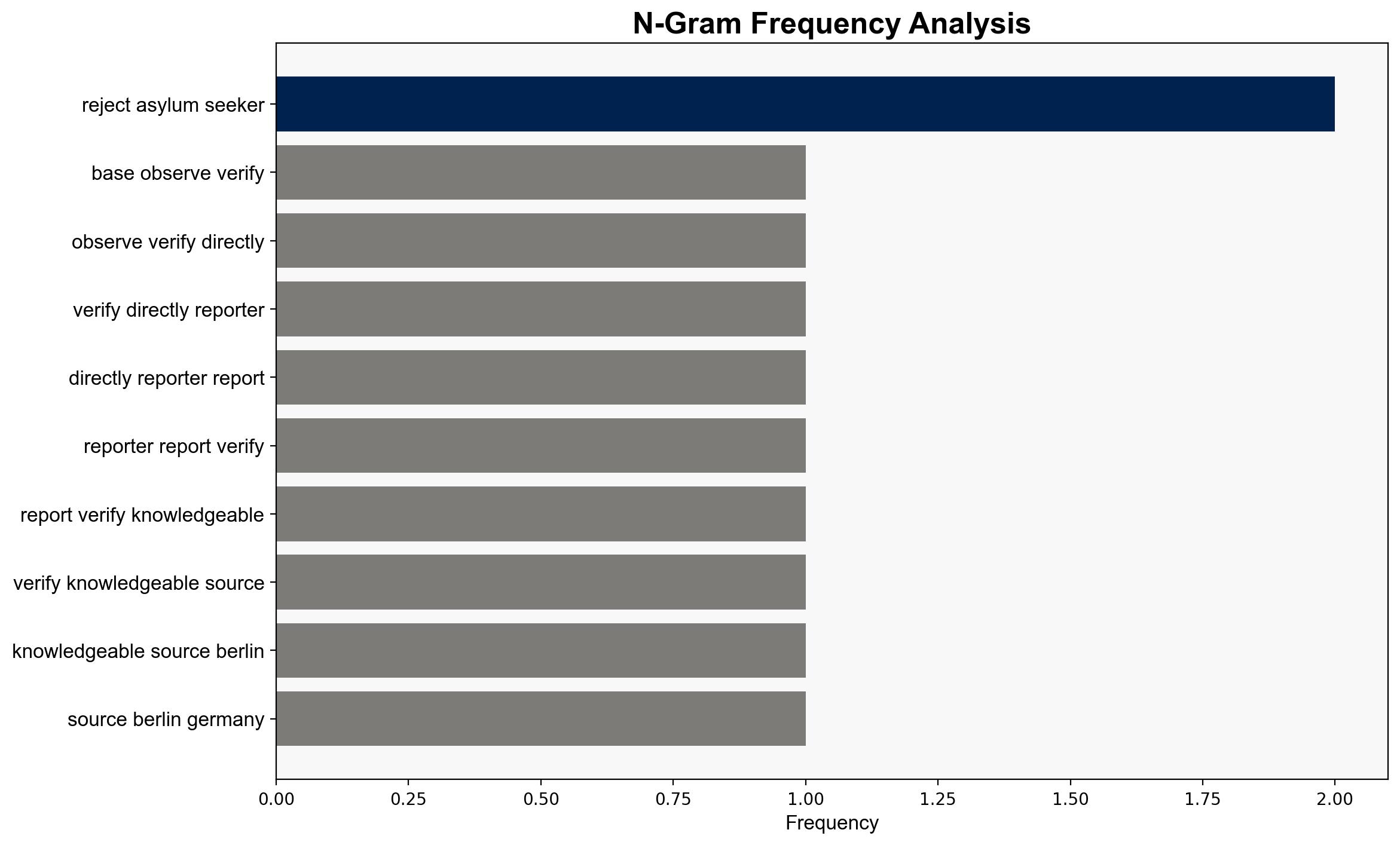In EU first Germany to allow Taliban officials to work at Afghan missions – EURACTIV
Published on: 2025-07-21
Intelligence Report: In EU first Germany to allow Taliban officials to work at Afghan missions – EURACTIV
1. BLUF (Bottom Line Up Front)
Germany’s decision to allow Taliban officials to operate within Afghan missions marks a significant policy shift, potentially influencing EU migration and diplomatic strategies. This move, while not constituting formal recognition of the Taliban, facilitates deportation processes of Afghan nationals. The strategic implications of this decision require careful monitoring to assess impacts on regional stability and migration patterns.
2. Detailed Analysis
The following structured analytic techniques have been applied to ensure methodological consistency:
ACH 2.0
Germany’s policy shift likely aims to streamline deportation processes while maintaining a non-recognition stance towards the Taliban. This approach may reflect a pragmatic response to domestic pressures regarding migration control.
Indicators Development
Monitor changes in deportation rates and any shifts in Taliban diplomatic activities within Germany. Track potential increases in digital radicalization or propaganda efforts targeting Afghan diaspora communities.
Narrative Pattern Analysis
Assess how Taliban narratives adapt to leverage their operational presence in Germany, potentially influencing recruitment and propaganda efforts targeting Afghan nationals and broader audiences.
3. Implications and Strategic Risks
The allowance of Taliban officials in Germany could embolden similar actions across the EU, affecting regional migration policies. This decision may also impact diplomatic relations with countries opposing Taliban recognition. Potential risks include increased radicalization and propaganda efforts, necessitating enhanced counter-terrorism measures.
4. Recommendations and Outlook
- Enhance intelligence-sharing mechanisms within the EU to monitor Taliban activities and their impact on regional security.
- Develop contingency plans to address potential increases in radicalization and propaganda targeting Afghan communities.
- Scenario-based projections:
- Best case: Improved deportation processes without significant security risks.
- Worst case: Heightened radicalization and diplomatic tensions within the EU.
- Most likely: Incremental policy adjustments across the EU, balancing migration control and security measures.
5. Key Individuals and Entities
Alexander Dobrindt, Stefan Kornelius, Nicoletta Ionta
6. Thematic Tags
national security threats, cybersecurity, counter-terrorism, regional focus




